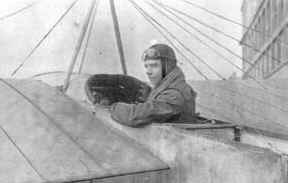 |
"THE NATIONAL THEATRE FOR DALMATIA" |
 |
"THE NATIONAL THEATRE FOR DALMATIA" |

The theatre goers in Split, who had abandoned the habit of frequenting the theatre due to a long pause, were getting more and more accustomed to the scenic expression and were again learning to appreciate the theatre. They however showed more liking for the operetta definitely preferring it to the drama, which was the reason why Ivo Tijardoviæ’s operetta ßLittle FloramyeÇ was by far the most frequently performed and the best loved piece in the repertoire. It should however be noted, in conclusion, that the citizens of Split very strongly objected to the management of the theatre, the very name being repulsive to many /"pozori¹teÇ is the Serbian for theatre, as opposed to the Croatian word ßkazali¹te" - translator’s remark/, primarily because of the aggressive anti-Croatian stand openly manifested by the afore mentioned ORJUNA members. * The ORJUNA was a notorious Belgrade founded and controlled political organization, basically anti- Croatian and promoting extreme "YugoslavÇ nationalism. /translator’s remark/ |
The "National Theatre for Dalmatia", founded in 1921 and working till 1928 was, up to the Second World War, the most significant theatre in Split. Over the period of seven years more than two hundred plays were performed, mostly by foreign writers and dramatists, and the repertoire could well be described as being eclectic, tending to favour ßlighterÇ genres with the obvious aim to attract wide audiences. The chief officials of this theatre and members of the management were, without exception, members of the so-called ORJUNA* /abbreviation of "Organization of Yugoslav Nationalists" - translator’s remark/. Not only was the language spoken on the stage far from good standard Croatian; it could be called a real galimatias, since the actors performing in Split came from all parts of the then Kingdom of Serbs, Croats and Slovenes. The official language was Serbian, but there were some Russian actors who had never properly mastered either Croatian or Serbian. Although the reasons for founding this theatre were primarily of a political nature, its artistic significance for the town of Split can not be entirely ignored. There were as many as twenty-one directors during that time, Ivo Raiæ being the most distinguished among them. Rade Pregarc, who had gathered experience working in the theatres of Trieste and Ljubljana, was the main initiator of most theatrical activities.
|